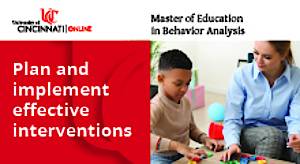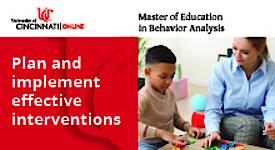Week in Review - November 20, 2020
NASET
WEEK IN REVIEW
National Association of Special Education Teachers
November 20, 2020 Vol 16 Issue #47
Dear NASET Members and Guests,
Welcome to NASET's WEEK in REVIEW. Here, we provide you with the latest publications fromNASET to read and or download, as well as some of the most interesting articles that have happened this week in the field of special education. We hope you enjoy this publication. Feel free to send us articles for this publication or let us know your thoughts about the WEEK in REVIEW at news@naset.org. Have a great weekend.
Sincerely,
WHATS NEW AT NASET
NASET's Parent Teacher Conference Handout
What Goes Into An Assistive Technology Report
Introduction
There will be many times when a child with special needs requires some type of assistive technology. In determining the best type of technology for a specific child several options are tested and presented to the child. The results of this procedure are often written up in an assistive technology report presented to the Committee on Special Education, IEP Committee etc. This PTCH provides parents with an example of what procedures are used to find the best suited assistive technology for a child with special needs.
The Impact on Families with Children Who Cannot Return to the Classroom Due to COVID-19
Millions of children have returned to the classroom, while others have opted to continue distance learning. But one group of families says there’s no choice involved for them, and their needs are being forgotten. 15-year-old Zach Silva was excited to start high school in-person, but his hoped-for return to the classroom has not worked out as planned. Silva has Mitochondrial Disease, which causes cognitive delays, mobility and speech impairments. The teen has a special education plan and, at school, he would normally have a one-on-one aide by his side. But with COVID-19 social distancing protocols, aides aren't going into students' home, instead offering help virtually. Read More
'Goldilocks' Neonatal Immune Response May Protect Against Autism
The causes of autism spectrum disorder (ASD) -- including genetic and environmental factors -- are not entirely understood. Many studies have already shown that serious maternal infection during pregnancy is associated with increased risk for offspring in both people and animals. New research however, shows that the lowest risk for ASD is associated with mid-levels of an immune marker measured at birth -- whereas too much or not enough were linked to increased risk. The report from researchers at the Karolinska Institute in Sweden appears in Biological Psychiatry, published by Elsevier. The study hinges on the idea that the developing brain may be particularly vulnerable to disturbances in immune signaling and exposure to inflammation. Read More
When Kids Watch a Lot of TV, Parents May End Up More Stressed
There's bad news for parents who frequently plop their kids in front of the TV to give themselves a break: It might actually end up leaving moms and dads more stressed. Why? Because the more television that kids watch, the more they're exposed to advertising messages. The more advertising they see, the more likely they are to insist on purchasing items when they go with their parents to the store -- and perhaps make a fuss if told "no." All that, researchers say, may contribute to parents' overall stress levels, well beyond a single shopping trip. The findings come from a University of Arizona-led study, published in the International Journal of Advertising, that explores the potential effects of children's television watching habits on their parents' stress levels. Read More
Prescriptions of Antipsychotic Medications in Young Children is Declining
The use of antipsychotics in young children is declining but doctors continue to prescribe these medications off-label for conditions not approved by the Food and Drug Administration and without the recommended psychiatric consultation, a Rutgers study found. The study, published in the Journal of the American Academy of Child and Adolescent Psychiatry, looked at 301,311 antipsychotic prescriptions filled by privately insured children ages 2 to 7 in the United States from 2007 to 2017. While results are encouraging that antipsychotic prescribing declined in recent years, the researchers noted that they continued to be prescribed for conditions lacking safety and effectiveness data such as conduct disorder, ADHD, anxiety and depression. Read More
Special Education Teachers Adapt to Pandemic Year
In a normal year, no two days are the same for Cambridge Elementary School special education teacher Mariah Turenne. “You just have to be really flexible. That’s the same, no matter what kind of school year it is,” Turenne said. But this year, Turenne said, “you have to be ready for anything.” This fall, Turenne has spent her days working both in-person and virtually with kindergarten, first and second-graders who have individualized education plans (IEP), or may need additional support. She’s bringing students into her classroom, socially distanced, modifying assignments and meeting virtually with students one-on-one. “You just have to meet them where they’re at,” Turenne said. “That’s what our kids need.” Read More

Bridging the Digital Divide for Students with Disabilities
The unexpected shift to the remote workplace and classroom brought on by COVID-19 has left many families across the country with inequitable access to devices and technology infrastructure, a problem known as the digital divide. For students with disabilities, the digital divide, is not only an issue of access to broadband and technological devices, but also about ensuring that the technology is inclusive for their needs. Remote learning is especially challenging for students with disabilities who require specialized instruction and accommodations to access high-quality education, and the digital divide exacerbates this challenge. If students with disabilities are not given the supports they need to learn with technology, then we will effectively be locking them out of the workforce and perpetuating a cycle of unequal treatment. Read More
Vocational Rehabilitation Helps Lift People with Disabilities Out of Poverty
Social Security Disability Insurance (SSDI) benefits do not always keep individuals with disabilities out of poverty. To support these individuals' efforts to lift themselves out of poverty, the Substantial Gainful Activity (SGA) Project was piloted in Kentucky and Minnesota. It showed that individuals who engaged in a vocational rehabilitation services intervention were able to earn increased income above SGA-level earnings. The authors recommend expanding the project to other US state agencies. In a special issue of the Journal of Vocational Rehabilitation Guest Editors Susan Foley, Ph.D., Institute for Community Inclusion (ICI), University of Massachusetts Boston, Boston, MA, U.S., and Purvi Sevak, Ph.D., Mathematica, Princeton, NJ, U.S., have assembled seven insightful reports on the SGA Project from early design through completion of randomized controlled trials in two states. Read More
Literacy as a Tool for Liberation
We are in a particular moment that demands a different response than in times past. COVID-19 and racial reckonings have exposed what many of us who are BIPOC (Black, Indigenous, and People of Color) have known for quite some time: We live in a society that is racist, classist, and does not treat everyone fairly. More specifically, for those of us who are educators, we have had to admit these truths while supporting our students' own burgeoning awareness. These days are, indeed, challenging. The pursuit of literacy is a pursuit for liberation, especially during a pandemic. In the 2020–21 school year, it is incumbent upon educators to radically imagine and implement new ways of nurturing the literacy of BIPOC boys while holding onto what we already know is effective: access to texts that provide mirrors, windows, and doors; choice; culturally relevant instruction; and deep work on building relationships with students. Read More
Teachers Forced to “MacGyver” Their Own Tech Solutions
When Audrey Green, a middle school teacher in Broward County, Florida, began the year working remotely with her students, she had a lot to think about. She had to establish a personal connection with students she’s never seen face to face and help children develop tools to cope during a pandemic. And she had to handle emotionally heavy issues, like the student who hung around after class online because she said she didn’t want to be alone. All of that while also ensuring they were being challenged academically. But before she could do any of the hard work of teaching students through a screen, she had to solve another problem. How would she set up those screens in the first place? Read More
Strategies to Encourage Students to Turn Their Cameras On
While there is a tremendous amount of value to being able to see your students’ faces during distance learning, we can’t force them to be on camera, just as during in-person teaching, we can’t force unengaged students to lift their heads or remove hats or hoodies that obscure their faces. With experimentation and persistence, however, you can arrive at strategies that work. Whether they need options, encouragement, or trust in order to turn their cameras on, there’s likely a solution that is the right fit for your classroom, circumstances, lessons, and students. Read More
|
Congratulations to: Larry Jones, Olumide Akerele, Joanne Tippett, Sharon Domine, Laura Pfandler, Vanessa Chratian, Wendy Stein, Julie Westcott, Patsy Ray, Susan Mason, Dabelle Fugate, Stephanie Jenkins, Karen Frantz-Fry, Tammy Wade, and Karen LesPierre who all knew the answer to last week's trivia question:
This birth defect happens during the first month or so of pregnancy and means that the baby’s spine did not close completely. It is a neural tube defect resulting from failure of the bony spinal column to close completely during fetal development. Occulta, Meningocele, and Myelomeningocele are the three types. What is the name of this birth defect?
Answer: SPINA BIFIDA
This Week's Trivia Question: According to a study recently published in The Journal of Nutrition (reported in NASET’s 11-13-20 Week in Review), mothers' specific vitamin levels during pregnancy were associated with their children's IQ, suggesting that higher vitamin levels of this type in pregnancy may lead to greater childhood IQ scores. What was the vitamin being referred to addressing these results?
If you know the answer to this week's trivia questions, email it to us at contactus@naset.org by November 24, 2020. If you are correct, you will be acknowledged in next week's NASET's Week in Review
Study Finds Surprising Diversity in Early Child Care
A new study of kindergarteners in one Midwestern state identified seven different pathways the children took in their early education and care before arriving at school. The researchers were surprised by the diverse experiences that kids brought with them to kindergarten: While some received care only in their home or mainly in a child care center, others switched back and forth between different types of care, or had other arrangements. This study is one of the few that has looked at kids' child care experiences all the way from birth to kindergarten, which allowed the researchers to capture the broad range of pathways, said Nathan Helsabeck, lead author of the study and a graduate research associate in educational studies at The Ohio State University. Read More
COVID-19 Can Worsen OCD in Children and Young People, Study Finds
Many children and young people with obsessive thoughts and compulsions experience that their OCD, anxiety and depressive symptoms worsen during a crisis such as COVID-19. This is shown by a new research result from Aarhus University and the Centre for Child and Adolescent Psychiatry, Central Denmark Region. The findings have been published in BMC Psychiatry. Trauma and stress can trigger or worsen OCD. Researchers already know this. They have also shown us that COVID-19 may be associated with adults developing psychiatric disorders. But we do not know much about what the corona crisis means for children and young people. Read More
Fish Give Insight on Sound Sensitivity in Autism
A tiny fish is helping scientists understand how the human brain processes sound, while also giving insight to autism spectrum disorder. Queensland Brain Institute's Associate Professor Ethan Scott and Dr Lena Constantin used zebrafish that carry the same genetic mutations as humans with Fragile X syndrome and autism, and discovered the neural networks and pathways that produce the hypersensitivities to sound in both species. "Loud noises often cause sensory overload and anxiety in people with autism and Fragile X syndrome -- sensitivity to sound is common to both conditions," Dr Constantin said. "We think the brain is transmitting more auditory information because it is being filtered and adjusted differently. Read More
Utah Teachers Call for Remote Learning as Virus Cases Surge
Utah’s largest teachers union called for the governor to move all public secondary schools in high coronavirus transmission areas to remote learning on Friday as the state reported a single-day record of 17 COVID-19 deaths. The Utah Education Association also called for Republican Gov. Gary Herbert to suspend all extracurricular activities that can’t comply with social distancing guidelines in high transmission areas from the Thanksgiving holiday throughout winter break. “We are now seeing multiple schools repeatedly shift back and forth from in-person to at-home learning due to outbreaks,” the union wrote in a statement. “This cycle is obviously not helping to control the virus spread and, as educators, we can unequivocally state the continual interruptions are not in the best interest of student learning.” Read More
JOB POSTINGS
* Educational Instructional Support Specialists - The Collaborative for Educational Services (CES) is seeking Educational Instructional Support Specialists to assist with onsite coordination of hybrid and/or remote teaching and learning. The Specialist will provide structure, onsite support and the connection to teachers as needed. The Specialist's purpose is to make sure that students have what they need in order to actively, and successfully engage with their learning when done via remote instruction, or through a combination of in person and on-line (hybrid) programming. To learn more- Click here
* FT Special Education Teachers, (K-4, 5-8, 9-12) - PA Virtual has openings for Full Time Special Education Teachers at the Elementary, Middle and High School Levels. All teaching positions are remote and we require candidates to have a current, valid certification to teach in the state of Pennsylvania. The Teacher position is responsible for the planning, organization and implementation of an appropriate instructional program, in an elementary or secondary virtual learning environment. To learn more - Click here
* Special Education Teacher - A local school district in Charleston, SC has partnered with an industry leading healthcare job placement agency, to fill several vacant Special Education Teacher positions in Charleston, SC for the entire 2020-21 School Year. The Special Education Teacher is responsible for planning, coordinating and the provision of special education services to eligible students. This position assures adherence to timelines and federal and state requirements for special education services and the responsibility for monitoring compliance with Individualized Services Plans (ISP) and/or Individualized Education Plan (IEP). To learn more - Click here
* Special Education Teacher - Merakey is seeking a Special Education Teacher to join our Education Services within our Children's and Family division in our school in Chambersburg PA for the 2020-2021 school year. The Merakey Children's and Family Division focuses on a continuum of care throughout the lifespan. The core, fundamental principles of Applied Behavior Analysis (ABA) are incorporated into a specialized approach across all service offerings. To learn more - Click here
* Special Education (Autism) PreK-4 - General responsibilities indlude aiding each student consistent with his or her abilities and educational needs. Develop competence in the basic learning skills, progress on the basis of achievement, and to qualify for further education and/or employment. To learn more - Click here
* Virtual Special Education Teacher Positions - K12 believes in education for everyone. We provide families an online option for a high-quality, personalized education experience. Students can thrive, find their passion, and learn in an environment that encourages discovery at their own pace. In support of this, we are committed to creating and maintaining a culture of inclusion and diversity. To learn more - Click here
* Special Education Teacher - $60,000/school year (185 days), summers off with year-round pay and year round appreciation. Special Education Teachers needed in Arizona (Phoenix and surrounding cities). Needs are in the self-contained and resource settings serving students with emotional disabilities (ED), Autism (A), Severe/Profound (S/P), and Intellectual Disabilities (ID). STARS is the largest school contract agency in AZ. STARS is owned and operated by Occupational Therapists. You will be an employee and receive full benefits - To learn more - Click here
If you are an Employer looking for excellent special education staff - Click here for more information
FOOD FOR THOUGHT
Do your little bit of good where you are; it's those little bits of good put together that overwhelm the world.
Desmond Tutu
Return to Week in Review Main Page - Click here



